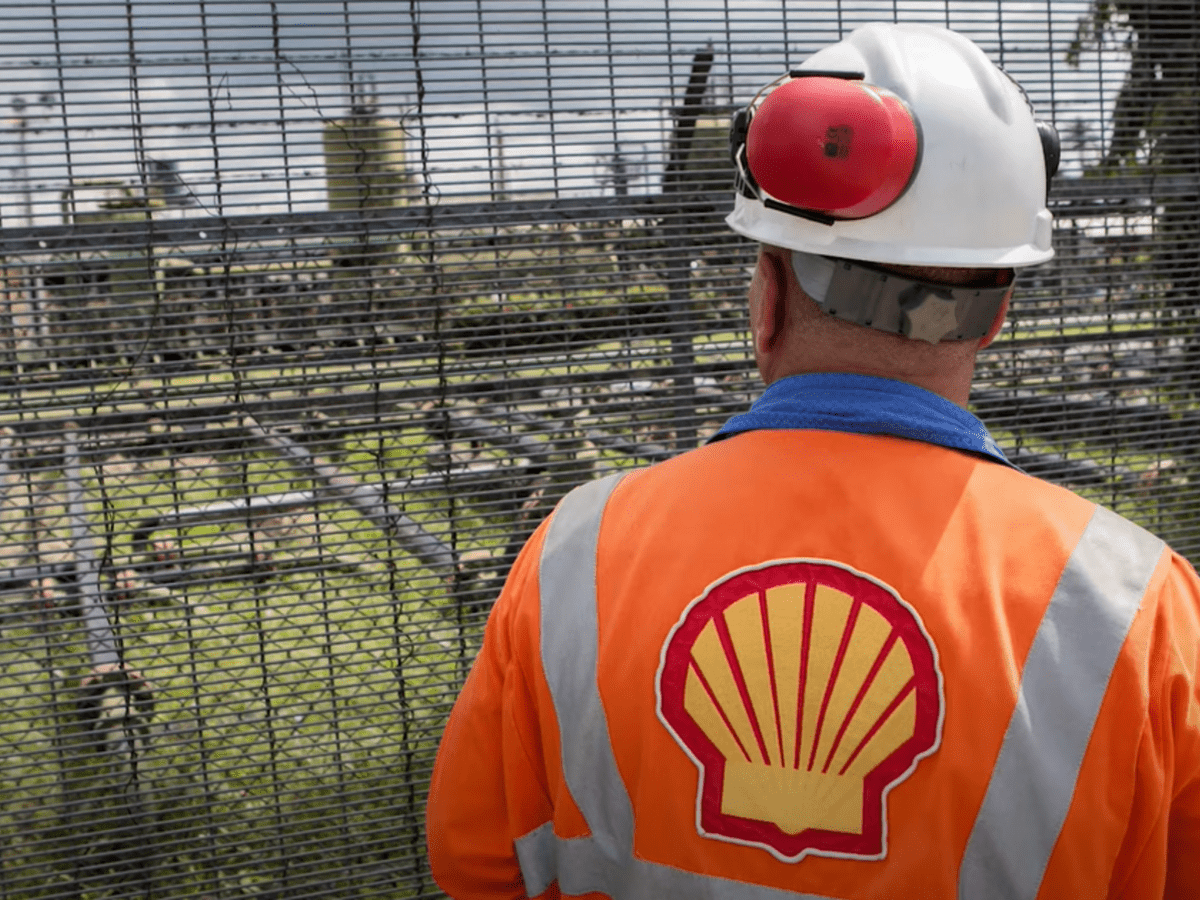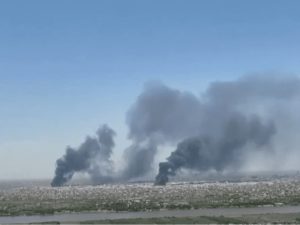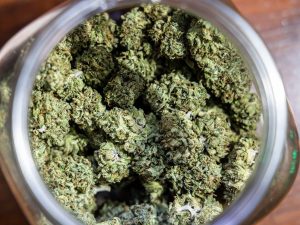Human rights groups have called out fossil fuel major Shell’s plans to palm off its projects in the Niger Delta. Crucially, they are highlighting to Nigeria’s government that the company must guarantee Shell honours its responsibilities to local communities, especially regarding pollution.
Shell pollution in the Nigeria
The Anglo-Dutch fossil fuel major started operating in Nigeria in the 1950s. Since then, the company has routinely polluted the Niger Delta with oil spills, destroying ecosystems and community livelihoods. The Niger Delta is the heartland of Nigeria’s crude production.
Moreover, as the Canary previously explained Shell has a notorious history of rights violation in the country:
The Niger Delta in Nigeria is the site of perhaps one of the most infamous cases of fossil fuel human rights abuse. In 1995, the Nigerian government executed nine activists who were opposing Shell’s operations in the delta. This included writer and human rights activist Ken Saro-Wiwa. For decades, widowers of the Ogoni Nine – the men who were arbitrarily detained and executed without fair trial – have been fighting for justice. They took Shell to court, claiming that the company was complicit in the death of their husbands. However, in March 2022, a district court in the Hague dismissed the case due to insufficient evidence to prove Shell’s role.
Shell has repeatedly denied any involvement in the execution of the Ogoni 9. However, in 2009, it settled out of court with the Saro-Wiwa estate, relatives of members of the Ogoni 9, and others who faced human rights violations at the hands of the company for a sum of $15.5m.
Farming and fishing communities in the Niger Delta have fought years of legal battles over damage from oil spills in the area. In November, the High Court in London ruled that over 13,000 Nigerian farmers and fishers could take Shell to court. Specifically, as the Guardian reported:
The judge ruled it was arguable the pollution had fundamentally breached the villagers’ right to a clean environment under the Nigerian constitution and the African charter on human and people’s rights. Claims under these rights have no limitation period.
Given all this, on Monday 15 April, Amnesty International and other rights groups called on Nigeria’s government to halt Shell’s sell-off. In particular, they said that the company should first guarantee the rights of local communities.
Shell “slipping away from its responsibilities”
Shell has agreed to sell its onshore assets in the country to a Nigeria-based group for up to US $2.4bn as it shifts to offshore operations. Renaissance African Energy is the company seeking to acquire these.
So, in an open letter dozens of Nigerian and international rights groups called on a Nigeria regulatory commission to refuse approval of the sale of the assets. The letter reads:
Shell should not be permitted to use legal gymnastics to escape its responsibilities for cleaning up its widespread legacy of pollution
In addition, it argued that the commission should not be permit the Shell asset sale unless the company fully consults local communities. On top of this, the regulatory commission should stop the sale in its tracks until Shell has cleaned up its mess. Specifically, it suggested the government should assess the environmental pollution Shell has caused to date. Then, it would need to calculate the clean-up costs Shell should fund.
In a press release Amnesty International’s Nigeria director Isa Sanusi said:
There is now a substantial risk Shell will walk away with billions of dollars from the sale of this business, leaving those already harmed without remedy and facing continued abuse and harms to their health.
Guarantees and financial safeguards must be in place to immediately remedy existing contamination and to protect people from future harms before this sale should be allowed to proceed.
Shell must not be permitted to slip away from its responsibilities for cleaning up and remedying its widespread legacy of pollution in the area.
Meanwhile, chairman of Nigeria-based Human and Environmental Development Agenda Olanrewaju Suraju added that:
Shell’s operations in the Niger Delta over many decades have come at the cost of grievous human rights abuses of the people living there. Frequent oil leaks from its infrastructure and inadequate maintenance and clean-up practices have left groundwater and drinking water sources contaminated, poisoned agricultural land and fisheries, and severely damaged the health and livelihoods of inhabitants.
Feature image via Youtube – Guardian News
Additional reporting by Agence France-Presse




